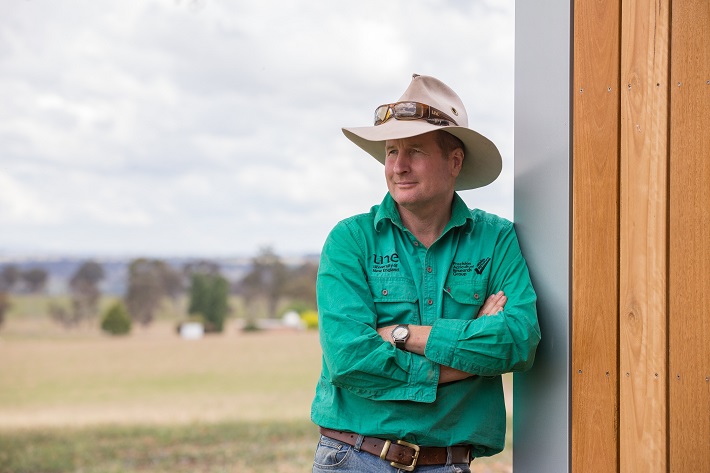Earth's human population currently exceeds seven billion, and it’s expected that there will be at least two billion more mouths to feed by 2050; a demand that will stretch current resources to the limit.
A key player in the race to improve food production efficiencies and sustainability in Australia is the $150m Food Agility Collaborative Research Centre (FACRC) under leadership of newly appointed Chief Scientist, University of New England’s McClymont Distinguished Professor David Lamb.
David has an extensive background in precision agriculture and telecommunications – knowledge that will be key to understanding the digital landscape the FACRC will be operating in and determining its research agenda.
Food Agility is tasked with transforming the Australian food system to ensure sustainability and championing deliberate innovation.
“The FACRC is different from previous CRC’s in that we’ve adopted an agile approach to projects with the emphasis on frequent redesign rather than the high-level, one-step design aspect of traditional project management. We don’t mind projects failing, as long as they fail fast. Then we pull, pivot or persist” David said.
“Taking an agile approach to solving crucial challenges of our time is a key part of delivering impact to the agrifood sector.”
A major dimension of David’s role is to harness current digital capabilities from around Australia, including eight partner universities and a host of industry partners, to boost decision making along the whole food supply chain.
“Data sits at the heart of it all. Everything from getting the best out of what the weather has to offer our farmers in managing plants, animals and our soils; to maximizing the efficiency of our machines and our transportation networks; to efficient, safe, secure financial transactions; effective biosecurity; capitalizing on our ever-mobile labour force; and listening to the all-important consumer; all of these rely upon data,” David said.
“It is estimated that by better understanding and deploying the digital capacity in the country, we can add $24.6 billion to the GDP – that’s an increase of more than 20% in agricultural productivity. We can make gains in the areas of automation, labour costs, genetics, biosecurity, supply chain optimisation and marketing.”
David’s initial contract with the FACRC will run until 2021. He has a long record of achievement including leading the Precision Agricultural Research Group (PARG) at UNE. He was also instrumental in establishing the UNE SMART Farm, a world-first “landscape laboratory” using interconnected communication networks to support and optimise farm management practices.
Food Agility operates as an innovation hub and offers unique opportunity to academics and entrepreneurs to work with project brokers to realise their ideas and collaborate with industry partners. Food Agility partners include agrifood businesses, technology companies, research institutions, key players in the finance sector and government organisations – the ideal mix to support a business process from concept through to impact.


